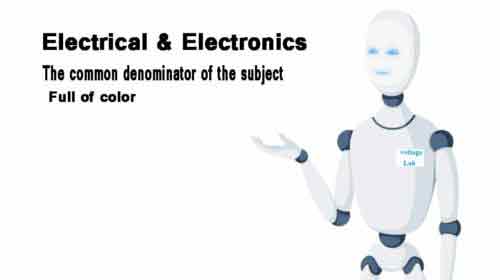Different abbreviations of electrical and electronics appear in different fields. These characters are used in different types of electronics devices, different circuits, tools, and functions.
Besides, these characters are almost exclusively in the electrical, electronics industry and various machine features or nameplates.
It is expected that this article will be very helpful for new students in the electrical and electronics department. Besides, I am starting to write this article out of thoughts that benefit everyone.
Table of Contents
Electronics Electrical Symbols and Names Full List
- A = Ampere
- V = volt
- VA = volt ampere
- C = capacitance
- f = Frequency
- R = Resistance
- G = Conductance
- X = Reactance
- Y = Admittance
- Z = Impedance
- XC= Capacitive Reactance
- L = Self Inductance
- s = slip
- M = Mutual Inductance
- T = liquid, time period, temperature
- T = time
- RF = radio frequency
- XL = Inductive Reactance
- AC = Alternating Current
- Ah = Ampere hour
- DC = Direct Current
- e.m.f = Electromotive force
- H = Henry
- Hz = hertz
- KHz = kilohertz
- MHz = Megahertz
- h.p = horsepower
- W = Watt
- kW = Kilowatt
- MW = megawatt
- MVA = Mega volt ampere
- KVA = Kilowolt Ampere
- KΩ = kilo ohms
- MΩ = mega ohms
- MMF = Magneto Motive Force
- p.d = Potential Difference
- p.f = Power Factor
- RPM = Revolutions per minute
- lm = Lumen
- μF = micro-farad
- μA = micro ampere
- Wb = Weber
- ckt = Circuit
- S.P = Single Pole
- SPDT = Single Pole Double Throw
- DPDT = Double Pole Double Throw
- FDB = Fuse Distribution Board
- DP = Double Pole
- IC = Integrated Circuit
- KCL = Kirchhoff Current Law
- KVL = Kirchhoff’s Voltage Law
- mA = Milliampere
- mV = millivolt
- LED = Light Emitting Diode
- LDR = Light Depending Resistor
- LT = Low Tension
- HT = High Tension
- MCB = Miniature Circuit Breaker
- P = Pole
- PT = Potential Transformer
- CT = Current Transformer
- Q = Charge
- SWG = Standard Wire Gauge
- VCB = Vacuum Circuit Breaker
Compare Business Electricity Prices | Rates | Supplier Quotes | Saving Tips
INDUCTION MOTOR | WHY DOES THE ROTOR ROTATE | WORKING PRINCIPLE
WORKING PRINCIPLE OF ALTERNATOR
SPEED CONTROL OF DC MOTOR (SHUNT, SERIES, AND COMPOUND)
SPEED TORQUE CHARACTERISTICS OF D.C MOTOR
Wye Delta Transformation | Diagram & Formula | Application


